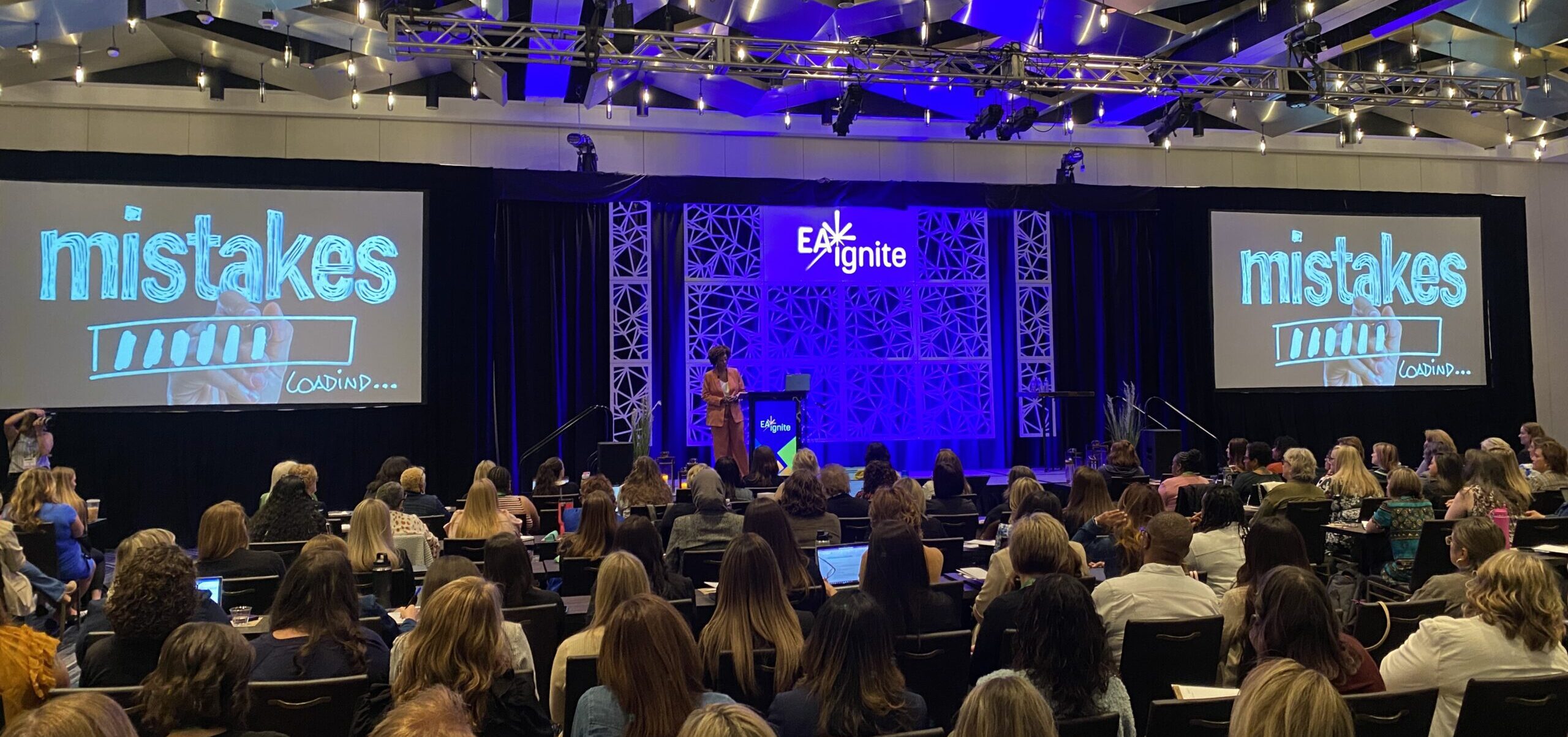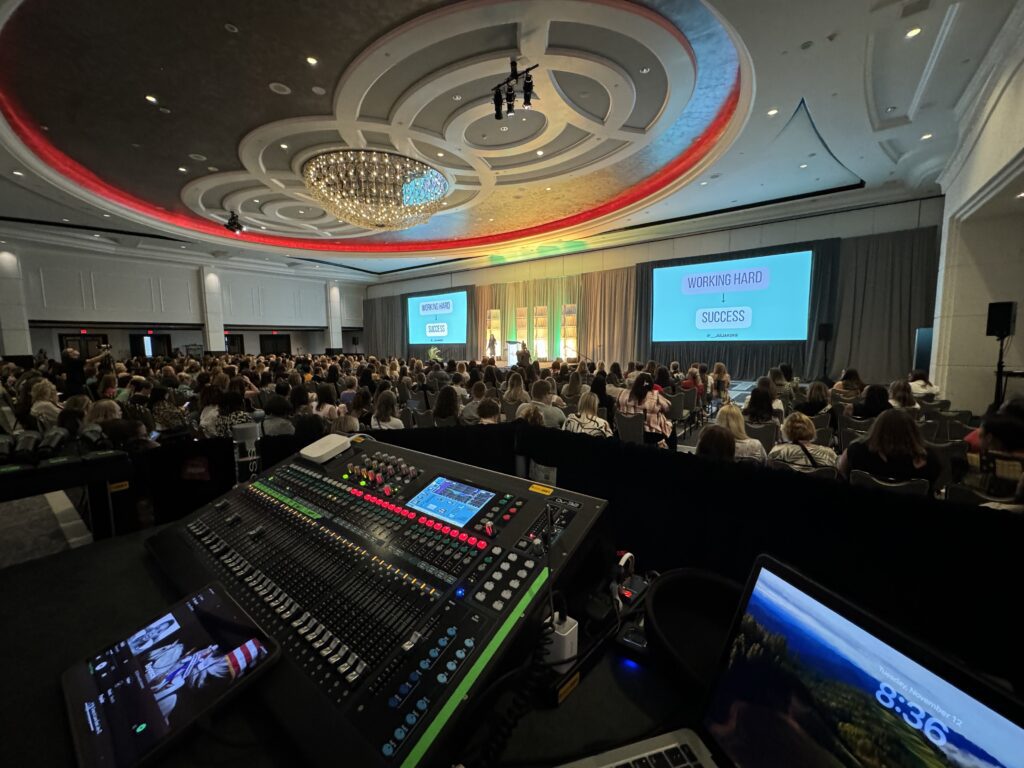
Event planning is a complex task. From managing logistics to ensuring every detail falls into place, an event planner wears many hats. However, one of the most critical aspects of an event—audio and visual production—can often be the toughest, and priciest component. This is where an “A/V translator”, someone who bridges the gap between the planner and the technical team, comes into play. Here are a few reasons why every event planner should consider bringing in an A/V translator to help work with audio-visual vendors.
A/V companies and production teams obviously take a great deal of pride in their work. However, to an event planner, the terminology that gets thrown around can be confusing and overwhelming. Terms like “DI boxes,” “Mix/Minus,” or “Fresnel Lens” may be part of the AV world, but can seem like another language to those who aren’t in the field every day.
An A/V translator is there to do exactly that, decode the technical jargon. They help explain the essential elements in plain language and ensure that both parties understand exactly what’s being discussed. This not only saves time but also avoids the frustration that can arise from miscommunication and hefty price tags from change orders.
Every event planner has a vision for their event—how the space should feel, what atmosphere they want to create, and how the audience should interact with the event. However, the technical side of event production requires translating that vision into something feasible with the right equipment and expertise.
An A/V translator helps by interpreting the planner’s vision and translating it into the technical requirements that an A/V vendor can execute. This includes determining what kind of sound system will best fit the venue, how large the screens screens should be, what lighting setup will create the perfect wow factor, and more. They ensure that the production company delivers what’s needed to bring the event to life without technical hiccups.

One of the most challenging aspects of working with A/V teams is ensuring you only rent or purchase what’s truly necessary and what will actually be required to get the job done. Event planners may be unfamiliar with the range of available equipment and can often rent the incorrect gear required to deliver a great event. Without an A/V translator, it’s easy to either under-budget or over-purchase, both of which can lead to unnecessary costs later down the line or technical failures.
An A/V translator’s job is to assess the real needs of the event. They work with the planner to understand the space, the expected audience size, the purpose of the event (standard presentation, fundraising gala, all-hands meeting etc.), and more. Their expertise ensures that the event gets the appropriate gear and staff without any redundant or unnecessary additions, saving you money while ensuring quality.
Audio-visual production involves many moving parts, and it’s not just about setting up equipment; it’s about ensuring that everything works perfectly together. Miscommunication between an event planner and an AV vendor can lead to misplaced priorities, missed deadlines, or a lack of coordination during the event. This is where an A/V translator steps in to manage both sides’ expectations.
From determining load-in times to establishing contingency plans for technical issues, an A/V translator acts as a mediator, ensuring that the event runs smoothly on the day.
The setup phase of an event is often chaotic and confusing. Show producers are worrying about the script, speakers are fine tuning their presentations and organizers are making sure everyone has arrived on site safe and sound. It’s during this time that technical issues can arise, and communication can break down. Having an A/V translator on-site can make all the difference in ensuring that the vendor team understands the event planner’s timeline and requirements while also considering any technical challenges that arise.
They act as the liaison between the planner and the technical team, solving problems as they arise and helping the planner stay focused on other event details.
Once the event kicks off, it can sometimes feel like the hard part is behind you, but as we all know, the work isn’t over. There are often unforeseen and sometimes unexplainable issues with technology—microphone feedback, screens cutting in and out, or presentations formatted incorrectly. In these instances, an A/V translator is the one who can quickly assess the problem and communicate it to the right technical experts in a way that minimizes downtime.
The last thing you want is for the event to be delayed because of a technical glitch.
So, in a nutshell, if you’re an event planner without an A/V translator in your corner, you’re running the risk of arriving on site thinking one thing while the production team is thinking another. Trust me, the last thing you want is for your flawless event to fall flat because the sound went rogue or the captions didn’t quite get the memo. The right A/V translator? Your event’s unsung hero. Get one. Thank me later.
For more about what you should be looking out for when planning A/V for an event, listen to our podcast breaking down what “A/V translator” is and how it can help your event. Want to chat about how to sort some of these things out for your next event? Let’s get in touch!